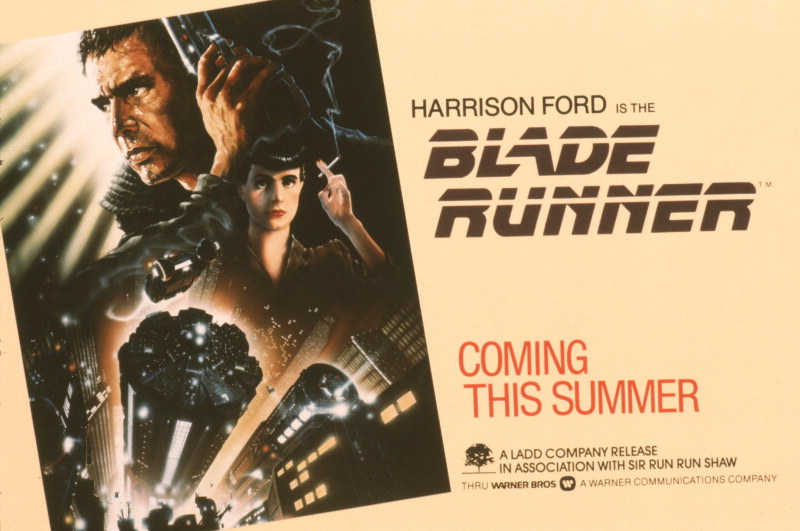Blade Runner initially underperformed in theaters when it was first released in 1982; some praised its thematic complexity and visuals, while others were displeased with its slow-paced narrative and unconventional plot. However, by 1992 it had become a cult classic and was re-released in newly edited versions. Why did it take a decade to find — or create — its audience?
As the film was set in a dystopian 2019 Los Angeles, a timely gathering is now in order. Three futurists will sit down on Tuesday, May 14 for a conversation on the film’s legacy and its relevance to Southern California.
The three guest speakers taking part in the panel discussion are:
- David Brin, UC San Diego alumnus (M.S., ‘78; Ph.D. ‘81) and Hugo and Nebula award-winning science fiction author
- Paul Sammon, author of Future Noir: The Making of Blade Runner
- Mike Davis, historian and author of City of Quartz and The Ecology of Fear
With former UC San Diego faculty member in the Department of Literature Stephen Potts serving as moderator, they will discuss the film’s influence and compare its vision with today’s 2019. A light reception and a film screening will follow the talk. The panel discussion and film screening are free and open to the public but space is limited. Registration is required for both events, separately.
SCHEDULE
- 5:45 PM: Doors Open
- 6:00 PM: Introduction
- 6:10 PM: Panel Discussion
- 6:45 PM: Audience Q&A
- 7:00 PM: Reception with light refreshments
- 8:00 PM: Film screening Blade Runner: The Final Cut (2007, 117 min.)
- 10:00 PM: Screening concludes
PANELISTS LINEUP
David Brin appeared on the science fiction scene in the 1980s with his popular Uplift War series and went on to win multiple sci-fi awards for stand-alone novels like Glory Season, Earth, and Existence and noteworthy non-fiction books like The Transparent Society. His novel The Postman was adapted into a 1997 film by Kevin Costner.
Paul Sammon is the author of Future Noir: The Making of Blade Runner, now in its third edition. A Hollywood insider, he was present during the film’s production, and has first-hand experience with director Ridley Scott, the cast and crew and even Philip K. Dick, author of the source novel Do Androids Dream of Electric Sheep?
Mike Davis is the author of many books of social history focusing on Southern California and its noir underpinnings, including City of Quartz, his 1992 exposé of 20th-century Los Angeles, and The Ecology of Fear, which chronicles Southern California’s landscape of disaster — fires, floods, earthquakes, political unrest, even tornados — and its presentation in popular culture. He also contributed materially to Under the Perfect Sun, a socio-political history of San Diego.
Stephen Potts (moderator) taught for 33 years at UC San Diego, specializing in popular culture, science fiction and other literary genres. Since the early 1980s, he has published multiple critical articles and books as well as fiction, editorials and reviews. Recent publications include the science fiction anthology Chasing Shadows, co-edited with David Brin, and a collection of critical essays on The Hobbit.
Photo Credit: © Warner Bros. Ent. All Rights Reserved.
Contact:
Mariah Fellows, (858) 534-0533, mfellows@ucsd.edu
Registration:
https://blade_runner_panel.eventbrite.com

